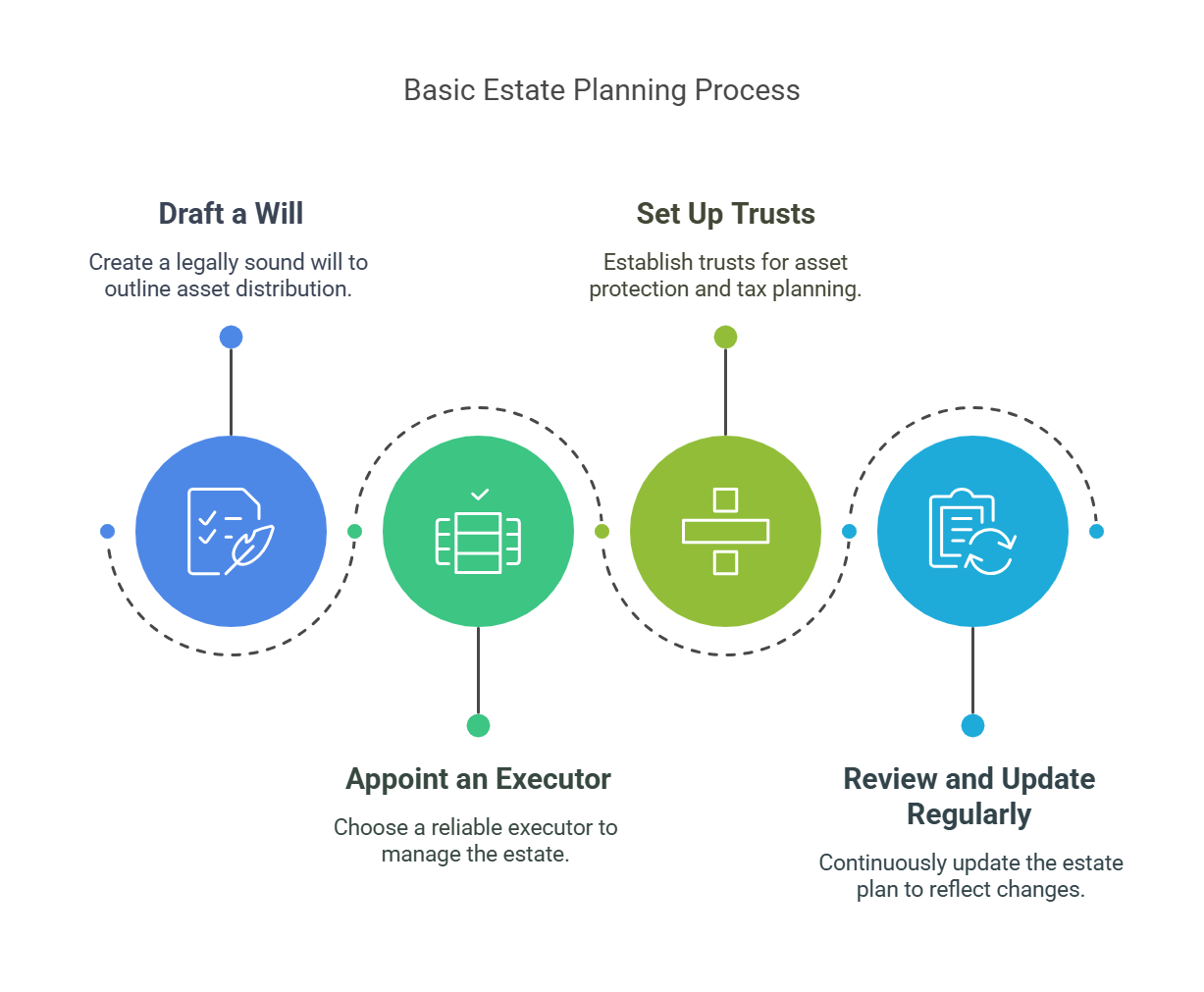Executing Basic Estate Planning
A Practical Guide
Once the necessary documents are understood, it is important to action them. These final steps put your plan into motion and ensure its continued relevance.

-
Draft a Will:
-
Explanation: A detailed and legally sound will is the foundational document. It specifies who receives what, and under what circumstances.
-
Practical Steps:
- Consult an attorney to draft the will, ensuring it complies with all applicable laws.
- Clearly identify all beneficiaries and their respective shares of your estate.
- Name a guardian for minor children.
- Specify funeral arrangements.
- Consider contingent beneficiaries in case the primary beneficiaries predecease you.
- Sign the will in the presence of witnesses and a notary public.
-
Importance: Provides a clear and legally enforceable plan for asset distribution.
-
-
Appoint an Executor:
- Explanation: Choosing a reliable and capable executor is crucial for proper administration of your estate. The executor is responsible for managing your assets, paying debts and taxes, and distributing the remaining assets to your beneficiaries.
-
Considerations:
- Choose someone you trust and who is organized and detail-oriented.
- Select someone who is willing to serve and able to handle the responsibilities.
- Consider a successor executor in case your primary choice is unable or unwilling to serve.
- Responsibilities: Inventory assets, pay debts and taxes, manage assets during probate, distribute assets to beneficiaries, and account to the court.
-
Set Up Trusts:
-
Explanation: Establishing trusts can provide significant benefits in terms of asset protection, tax planning, and control over asset distribution.
-
Practical Steps:
- Consult with an attorney to determine the appropriate type of trust for your needs.
- Transfer assets into the trust.
- Appoint a trustee to manage the trust assets.
- Clearly define the terms of the trust, including distribution provisions and beneficiary rights.
-
Benefits: Protects assets from creditors, minimizes estate taxes, and allows for customized asset distribution.
-
-
Review and Update Regularly:
- Explanation: Estate planning is not a one-time event. It requires ongoing review and updates to reflect changes in your life, financial situation, and tax laws.
-
Key Triggers for Review:
- Marriage or divorce.
- Birth or adoption of children or grandchildren.
- Significant changes in your financial situation (e.g., inheritance, sale of a business).
- Changes in tax laws.
- Death of a beneficiary or executor.
- Relocation to a new state.
- Importance: Ensures that your estate plan remains aligned with your current wishes and circumstances.

No Comments